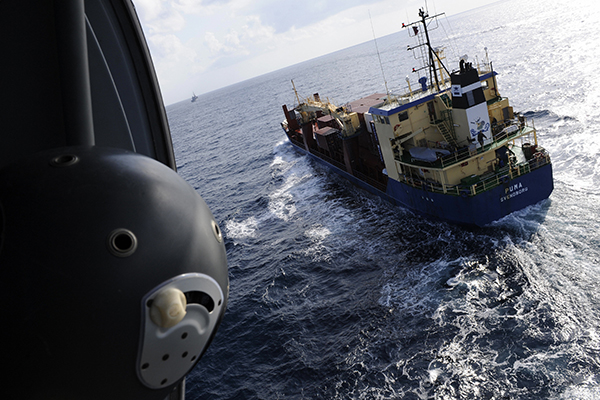March 14, 2014
UOW helping Australia promote maritime safety and security in the Indian Ocean
UOW to host officials from Indian Ocean nations for a 10-day training course in maritime security.
Australian efforts to combat piracy and increase cooperation on maritime security in a region with some of the world’s busiest shipping routes will be boosted when UOW hosts officials from Indian Ocean nations for a 10-day training course.
UOW’s (ANCORS) has been awarded a contract from the to deliver expert training in maritime security, regulation and enforcement to officials from the 20 member states of the Indian Ocean Rim Association (IORA) in June this year.
Indian Ocean rim nations are home to more than a third of the world’s population and cover an area stretching from Australia in the east, India and the sub-continent to the north and the east coast of Africa and the Persian Gulf to the west.
Indian Ocean ports handle about one-third of global trade, and half of the world’s container traffic traverses the Indian Ocean via three key routes that connect Europe, Asia and the Americas.
The region is also home to more than half the world’s known oil reserves and a route to move natural resources between Africa and China.
Regional insecurity and choke points along those routes, such as the Strait of Hormuz between the Persian Gulf and the Gulf of Oman and the Strait of Malacca between Indonesia and Malaysia, have combined to make these vital routes vulnerable to pirate attacks and terrorism.
The 10-day short course, based at the UOW, will contribute to IORA’s efforts to bolster maritime safety and security by addressing threats to maritime commerce and freedom of the high seas according to the UN Convention on the Law of the Seas (UNCLOS) and the safety of sea farers.
The course will seek to improve counter-piracy cooperation, including through training on maritime information-sharing arrangements and how to strengthen national legal capacity and laws.
Program Coordinator Professor Alistair McIlgorm said the UOW course would provide participants with the maritime security legal framework that will aid management of international shipping, ports, seafarer safety and broader supply chain practices.
“The program enables these issues to be investigated in depth and for participants to discuss regional and national implications and how they can be part of the solution,” Professor McIlgorm said.
Professor McIlgorm said a major barrier to improving cooperation has been that the Indian Ocean covers a vast area with diverse cultures, mixed languages and varying levels of economic development between Indian Ocean states.
“The region has never had a strong collaborative identity and its sheer size has inhibited collaborative development,” he said.
Professor McIlgorm said IORA Member States were becoming increasingly aware of the need to cooperate to ensure effective surveillance and the sharing of marine security information.
“Piracy off the coast of Somalia has been a problem for the past decade, expanding at a time far into the Indian Ocean, though it is now declining.
“Countries have coordinated closely to arrange large numbers of patrols to reduce piracy in the region, illustrating the benefits of international cooperation to address a common threat.”
IORA is the apex pan-regional organisation for the Indian Ocean and is mandated with building economic integration and promoting practical collaboration across the Indian Ocean rim.
IORA Member States agreed in November last year that they had a shared interest in the stability, security and prosperity of all countries of the Indian Ocean rim and a commitment to enhancing cooperation to deliver sustained economic growth and broad-based and balanced development in this strategically vital region.
“We are pleased to be able to offer this program to the IORA members and appreciate the support of the Department of Foreign Affairs and Trade in funding this initiative,” Professor McIlgorm said.
A range of ANCORS staff including Professor Stuart Kaye (Director), Dr Chris Rahman, Dr Robin Warner, Dr Clive Schofield and Dr Anthony Morrison will be delivering key components of the program in June 2014.
More information:
